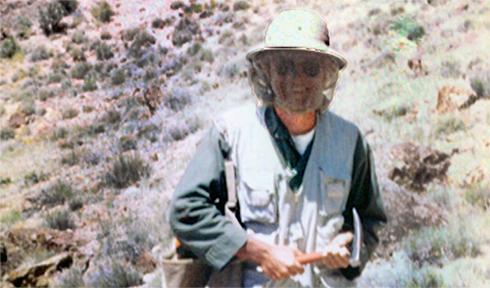
Gregory Pavlin

Ohio University B.S. Geology ’72; MIT M.S. Earth Science ’73; Penn State Ph.D. Geophysics ’81; Defense Intelligence College M.S. Strategic Intelligence ’87
I am from Cleveland, OH, and now reside in Washington, D.C. I had the good fortune to attend Ohio University from 1968 to 1972. Although I began my studies as a journalist, I transitioned to geology, while also emphasizing physics and mathematics courses, thanks to the mentorship of Professor Moid Ahmad. I am very grateful to the Geology Department’s outstanding cadre of professors who afforded me a superb education. I particularly enjoyed the 1971 geology field camp; one of the best experiences of my life, honeymoon withstanding, thanks to the hard work and dedication of Professors Yeats and Smith.
Of the original 300 Air Force ROTC cadets in 1968, I was one of 10 who received a commission in June 1972. The Air Force allowed me to accept a research assistantship from the Massachusetts Institute of Technology, for which I received my M.S. degree in Earth Science in 1973. For my thesis, I applied an electro-optical narrowband multispectral imaging system used for lunar astronomy to terrestrial remote sensing of selected minerals. After MIT, I served on active duty at the Air Force Systems Command’s Rome Air Development Center, Griffiss Air Force Base, New York, from 1973 to 1977, as a geophysicist. I served as an airborne sensor operator and coordinated U-2 collections to evaluate narrowband multispectral imaging techniques for military and intelligence applications.
I transitioned to the Air Force Reserves in 1977 to obtain my doctorate in geophysics from the Pennsylvania State University in 1981. My dissertation addressed reservoir induced seismicity and its triggering mechanisms. I deliberately chose the fields of applied geophysics and remote sensing so that I could better support the needs of the Defense and Intelligence Communities. To this end, I obtained my second M.S. degree in strategic intelligence in 1987 from the Defense Intelligence College. My research focused on the role of intelligence in detecting and identifying acts of genocide to support an international treaty for the prevention of genocide.
Following active duty, I served as an Air Force intelligence officer for another 26 years, retiring in 2002 as a Colonel. I enjoyed several overseas tours, as well as assignments with the Defense Intelligence Agency, spanning systems engineering through senior worldwide crisis management positions. I am also the president of a small defense corporation. As a defense contractor since 1979, I have directly supported the Defense and Intelligence Communities in the development and improvement of advanced aerospace reconnaissance and surveillance systems. In retrospect, it has been an honor and privilege to help contribute to our nation’s security, albeit subliminally at times. A career in defense or intelligence is not for everyone and, indeed, there are other excellent ways to serve our nation and the world. With the latter caveat, I would be very pleased to offer suggestions to students regarding possible academic and career paths, as well as my assistance to facilitate their career objectives.